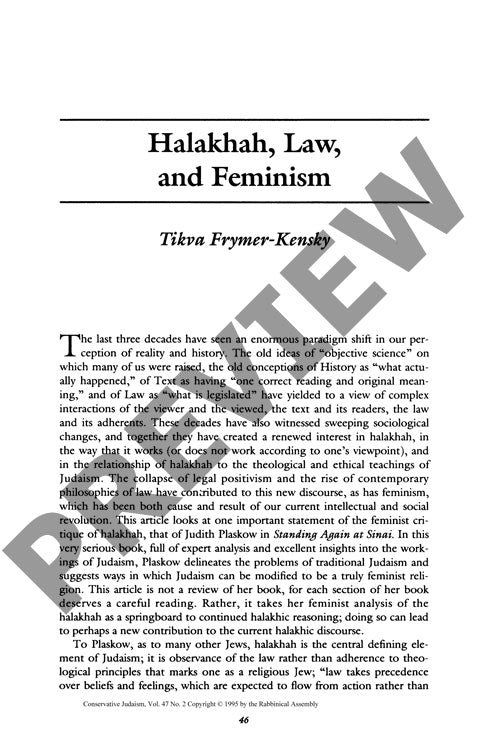Halakhah Law and Femnism
Couldn't load pickup availability
Jewish law (halakhah) functions primarily as a communal pathway toward divine ideals rather than as coercive legislation, creating unexpected opportunities for feminist legal reform. Through analysis of Judith Plaskow's feminist scholarship, three critical tensions emerge: the exclusionary content of traditional laws affecting women, legal structures that position women as passive objects, and women's historically understudied role in shaping Jewish legal tradition. A comparative analysis of Orthodox, Conservative, and Reform Jewish approaches to halakhic change reveals how women have influenced legal evolution through both informal mechanisms and contemporary formal movements. Drawing on historical precedents and modern jurisprudential theory, significant parallels emerge between feminist legal principles emphasizing relationships and care ethics, and traditional Jewish approaches prioritizing communal harmony and collective obligation. The findings demonstrate that halakhah can accommodate feminist values through recognition of plural perspectives, community participation in legal interpretation, and subordination of specific statutes to overarching ethical principles. Rather than requiring abandonment of Jewish legal frameworks, feminist ideals prove compatible with dynamic halakhic development, suggesting new pathways for reconciling traditional practice with contemporary gender equality.

More Information
-
Physical Description
-
Publication Information
Published 1995
ISBN
-
Publication Credits
Tikva Frymer-Kensky

